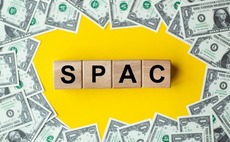
Big payouts detract from the real issues
The Last couple of months have been interesting times for private equity but perhaps largely for the wrong reasons. As all of you know, Mitt Romney’s bid for the Republican presidential candidacy has spurred criticism from rival politicians keen to attack the industry, particularly the level of taxes the general partners of these funds are paying.
Under current American law, PE fund managers pay different tax rates on different types of income. For ordinary income, which includes management fees and salaries, they pay as much as 35%. But for carried interest, which usually makes up a large portion of their income, they pay capital gains rates of 15%.
It was revealed that Romney paid an effective tax rate of 13.9% in 2010 but expects to pay a 15.4% rate when he files his return for 2011, which is much lower that what most working Americans are paying.
Those figures and the treatment of carried interest have raised more than a few eyebrows, and a number of influential people have spoken out against this apparent injustice, including Joe Dear, chief investment officer of the the California Public Employees Retirement System.
Dear was recently quoted as saying "general partners should recognize that tax treatment of their income has become indefensible" at a recent board meeting.
Last month, the Obama administration unveiled a plan, backed by congressional Democrats, to tax private equity profits up to 35%, although they announced that these taxes won't apply to profits earned when the founders and other executives sell some or all of their holdings in firms.
It will be some time before we know what happens but the market leaders' announcement of their top executives' pay packages didn't come at a very convenient moment as it brings even more attention to the money these investors earn. For example, the founders of the Carlyle Group, which is planning to go public, revealed last month that William Conway, Daniel D'Aniello and David Rubenstein took home more than $400 million in 2011, while KKR's Henry Kravis and George Robert got paid US$94 million each.
And depending on the report, Blackstone's Steve Schwarzman got paid anywhere between $148 million (Businessweek) and $215 million (Wall Street Journal/Reuters). Of course those numbers were blown out of the water by a compensation specialist who wrote that Schwarzman made close to US$750 million last year if his redemption of Blackstone shares were included.
While there are arguments for increasing the carried interest tax rates to income tax levels, as well as equally compelling reasons to keep it the same, the focus shouldn't be on what taxes GPs are required to pay. As Rubenstein recently said in a Davos panel discussion, "If you change the law, we'll pay the taxes." The focus should instead be on what private equity does for people and for the economy.
While I am unfamiliar with investments in Western markets, here in Asia Pacific, PE firms are doing a great job at turning their portfolio companies into better and more profitable entities.
Latest News
Asian GPs slow implementation of ESG policies - survey
Asia-based private equity firms are assigning more dedicated resources to environment, social, and governance (ESG) programmes, but policy changes have slowed in the past 12 months, in part due to concerns raised internally and by LPs, according to a...
Singapore fintech start-up LXA gets $10m seed round
New Enterprise Associates (NEA) has led a USD 10m seed round for Singapore’s LXA, a financial technology start-up launched by a former Asia senior executive at The Blackstone Group.
India's InCred announces $60m round, claims unicorn status
Indian non-bank lender InCred Financial Services said it has received INR 5bn (USD 60m) at a valuation of at least USD 1bn from unnamed investors including “a global private equity fund.”
Insight leads $50m round for Australia's Roller
Insight Partners has led a USD 50m round for Australia’s Roller, a venue management software provider specializing in family fun parks.








